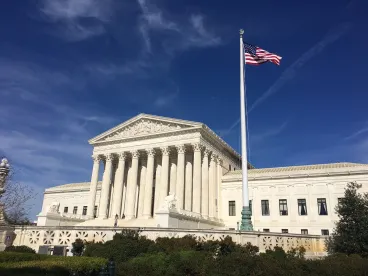In a 5-4 opinion (divided on expected conservative/liberal lines), authored by the Chief Justice, the Supreme Court has ruled in the case of Lamps Plus, Inc. v. Varella, No. 17-988, that under the Federal Arbitration Act (“FAA”), an ambiguous agreement cannot provide the necessary contractual basis for concluding that the parties agreed to submit to class arbitration.
This reverses the decision of the Ninth Circuit concerning a case relating to the unauthorized disclosure of personal tax information of employees of Lamps Plus after a hacker tricked an employee into divulging that information. The Supreme Court had held in Stolt-Nielsen S.A. v. AnimalFeeds Int’l Corp., 559 U. S. 662, that a court may not compel class-wide arbitration when an agreement is silent on the availability of such arbitration. Lamps Plusextends that holding to agreements that are ambiguous. In so doing, the Court’s majority stressed the FAA mandate that arbitration is a matter of consent, and is yet another example of the conservative majority of the Court, led particularly by Chief Justice Roberts, acting to limit the flow of employment and commercial disputes into the federal courts by strongly enforcing the FAA against various policy arguments made by labor unions and other employee groups and organizations on the jurisprudential left. See most recently Epic Systems Corp. v. Lewis, 584 U. S. ___ (2018).
The dissenters, not surprisingly, view the Lamps Plus majority holding as coercive, not consensual. Justice Kagan, in particular, defends the Ninth Circuit’s holding as non-discriminatory because, rather than conflict with the FAA, it is a neutral rule that affords equal treatment to arbitration agreements and other contracts alike. The Chief Justice notes, however, that such an equal treatment principle cannot save from preemption general rules “that target arbitration either by name or by more subtle methods, such as by ‘interfer[ing] with fundamental attributes of arbitration,’” quoting Epic Systems, 584 U. S., at ___ (slip op., at 7), which itself quoted Concepcion, 563 U. S., at 344.
In sum, this is a strong continuing endorsement of the FAA’s reach and power. And while one would always counsel parties to write unambiguous terms into their dispute resolution agreements, it is clear that the Court is not going to resolve an ambiguity with respect to class action arbitration by “clarifying” the term and ordering class treatment.




 />i
/>i

